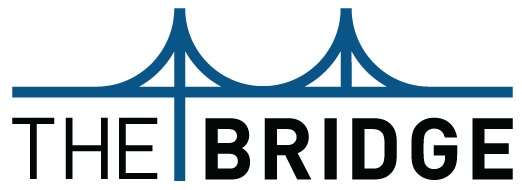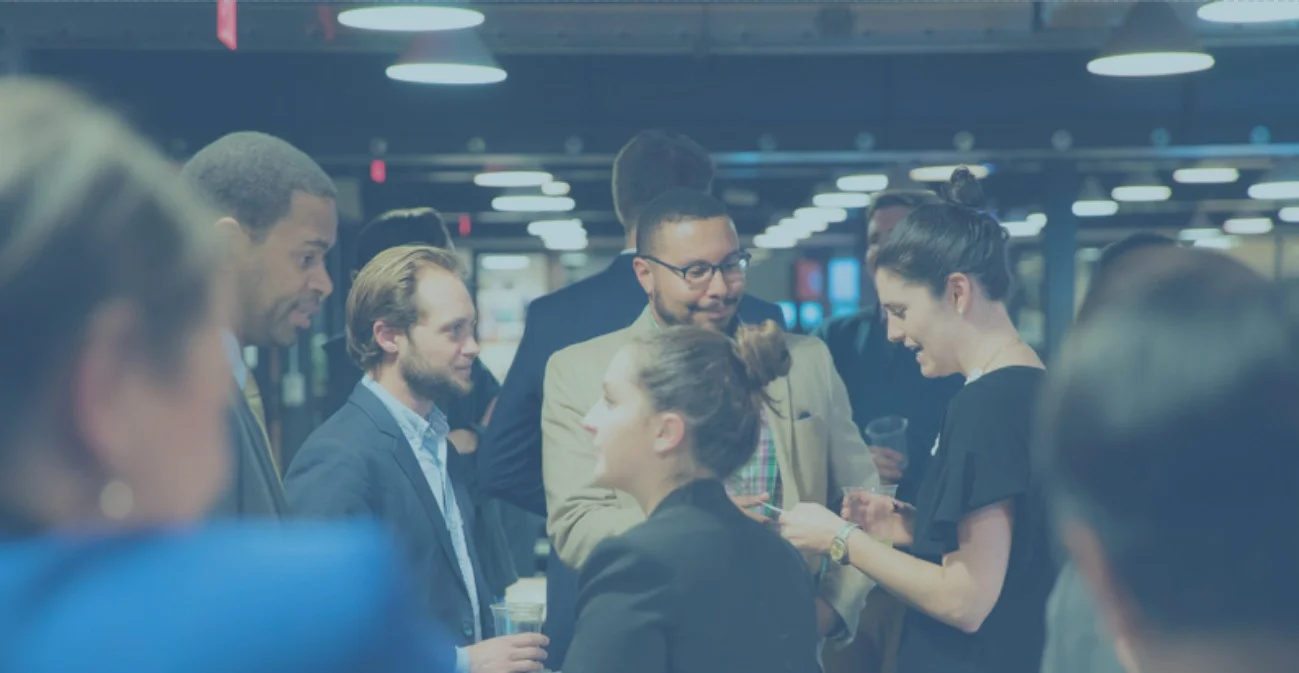TheBridge profile: Lisa Dyer
Name: Lisa Dyer
Current city: San Francisco, CA
Current job: Director of Policy, Partnership on AI
Past job: Director, Office of Intellectual Property Enforcement, U.S. Department of State
Q. Favorite spot for a coffee meeting? For tea: Asha Tea House in San Francisco, where you can have a quiet conversation and introduce colleagues to the art of tea. It is open for pickup and delivery during the pandemic.
For coffee: sitting around any kitchen table with my family. My teenage nephews impress me with their astute observations about technology and life - and not necessarily in that order. Our next coffee will be made with beans from Red Bay Coffee, a coffee roastery owned by Keba Konte, a black entrepreneur who includes people from underrepresented groups - people of color, the formerly incarcerated, people with disabilities, and women - in the specialty coffee industry.
Q. Describe how a skill you learned in a previous job helped you in your current job. I learned how to quickly convey pertinent information to very busy policymakers while working at the Department of State. Policymakers and people in the tech community are equally pressed for time, and being able to succinctly share information that enables people to contribute to discussions and solve problems made that part of my transition to the tech community seamless.
Q. Job advice in three words? Always be kind.
Q. How are you (or your company, org, nonprofit) currently bridging the gap between innovation and regulation? The Partnership on AI’s (PAI) mission is to ensure AI benefits people and society. We convene representatives from our partner organizations to develop best practices in a multistakeholder setting, answering questions such as: How can we reduce bias in algorithms? How do we explain to policymakers and system users the decisions AI systems make? How does the AI community detect mis- and disinformation to ensure the public has reliable information during COVID-19? We then ask our partners to implement these best practices, and to do so alongside or in the absence of laws and regulations. An essential part of realizing this mission includes educating policymakers about what we’ve learned through this process as they consider passing laws or adopting regulations.
What sets PAI apart from many AI-focused organizations is that we include people who are impacted by technology, and who are often not consulted in decisions about technology design, operations, and governance, in the multistakeholder process. I’m most proud of our efforts to prevent underrepresented groups from being further harmed and marginalized by artificial intelligence, but we have a lot to learn and so much more work to do in this area. We are in the process of hiring a Research Fellow to help us figure out how to meaningfully and systematically include these underrepresented voices in our work, thanks to the vision of my colleagues Jingying and Alice.
Q. What can innovators learn from policymakers? Process has become a dirty word due to its reputation for slowing things down, but incorporating smart, deliberate processes can actually help innovators arrive at thoughtful decisions that benefit their organizations. And the more you use these processes, the more efficient you become at working with people across the organization - again, with the potential for enormous payoffs. For example, listen to the commercial space industry’s space launches. You’ll discover a lot of similarities to government launches of old: each person on the team knows what they are supposed to do, and when, to achieve their goals of safely sending people or satellites into space.
Q. What can policymakers learn from innovators? COVID-19 magnified inequities in so many aspects of people’s lives, from access to health care and disease prevention; food, clean water, and safe homes; the unjust criminal justice system; to educational opportunities, technologies, and broadband. Today’s new reality for people across the globe places a special sense of urgency on policymakers - and us all - to address these inequities. And successful innovators know how to act with a sense of urgency and deliver results, in large part by aligning incentives to discover ways to compromise.
Q. Why are you part of TheBridge community? I joined TheBridge long before I left the government. It filled an unmet need by joining these two communities, which often talk past each other. The more people who can “translate” these worlds, the better.
People outside the tech community are starting to recognize the global economic, and therefore political, power of the tech industry. But that power is diminished if it doesn’t include the voices of those who are impacted by technology - as I mentioned above, an area where PAI is continuously striving to improve internally and externally, in concert with our civil society, academic, and industry partner organizations.
Q. Favorite book/podcast/long-form article you recommend? My colleague Caitlin recently introduced me to the New York Times’ The Daily podcast, and I am hooked on the amazing storytelling that takes place on this show. Storytelling is an immensely valuable way to translate technical research to policymakers, and I am always eager to learn from the best.
Books? I recently enjoyed When: The Scientific Secrets of Perfect Timing by Daniel H. Pink. It reminded me that often the secret to getting policy proposals adopted is to be able to identify when the time is right. I just re-read White Fragility by Robin DiAngelo in the aftermath of the murders of George Floyd, Breonna Taylor, and Ahmaud Arbery (and too many others). This book reminds me to continuously ask, “How am I part of the problem?” and “How can I be part of the solution?”
Q. Every day is probably different, but can you describe a "day in the life" of your job? I start my day by scanning newsletters and websites that help me understand the context of the world in which PAI, its partners, and policymakers operate. During this “stay safe at home” environment, my days are filled with virtual calls, ranging from internal coordination meetings, to organized workshops and webinars with PAI partner organizations and policymakers, to events designed to get to know prospective partners and new contacts. Right now, I am getting to know organizations and people in cities who are working on AI in their communities. PAI is focused on making the highly technical world of AI more accessible to policymakers and the public, so that we can all have conversations about the role of these systems in our communities and determine whether it makes sense for laws and regulations to govern their operations. Our work describing how facial recognition systems work is one example. By learning more about the activities taking place at the local level, we can better translate these technical systems so these essential conversations can take place. And we get a great sanity check by finding out if our work is relevant to people outside Silicon Valley, where PAI is based, and those outside the AI community.
Q. What's one piece of advice you are still trying to master? “Be ashamed to die until you have won some victory for humanity.” Horace Mann, President of Antioch College, commencement address, 1859. I am still seeking victories for humanity, as cheesy as that sounds.
Though I didn’t fully appreciate what I was learning at the time, today I’m a proud graduate of Antioch University (the same institution as the College until 2009), which was - and remains - a leading voice in social justice issues. And the world - and I - have a long way to go towards recognizing inequities and addressing and finding solutions to these important issues.
Q. Favorite app? Twitter, though I deplore the hatred and cruelty posted by some users. So why is it my favorite app? First, it enables me to keep up with issues relevant to my job. For instance, a vocal and at times critical element of the AI and machine learning communities are on Twitter, as are their fans and detractors. They share research findings, offer criticisms (and sometimes compliments) of new technologies, and make suggestions to improve the tech industry. I stay for the dog tweets, which warm my heart. I’m looking at you, I’ve Pet That Dog (@ivepetthatdog), WeRateDogs (@dog_rates), and Thoughts of Dog (@dog_feelings).
Q. Best advice you’ve received? I’ve been fortunate to have mentors, from the accomplished, thoughtful woman formally matched to me (called a “sponsor family”) while I was attending the U.S. Air Force Academy, to my brother, who helps me make sense of the world today. They taught me how valuable it is to be a mentor - and the payoffs are immense. Being a mentor is different than being a sponsor, who creates opportunities to rise to more senior positions whether you are ready or not. A mentor will teach you what you need to thrive when you get to those leadership positions.
My mentors over the years have also taught me that one of the most important skills you can do is to teach people to be a servant leader, meaning that you are there to serve the people you work with, not the other way around. My favorite jobs have been in organizations that embrace servant leadership.
Q. Last time you were completely unplugged? I took a work trip just prior to the Bay Area implementation of “stay safe at home” measures. The wifi on the flight was spotty, enabling me to close my laptop and watch the airline’s offerings without guilt: “Ford vs. Ferrari” for the first time (which brought me to tears) and “Dr. Strangelove” for the millionth time (which made me belly-laugh out loud). Both movies made me think about leadership, the state of the AI community, and new opportunities for PAI to work closely with our partners and with policymakers - all very relevant to my job. Perhaps I didn’t fully “unplug”?
Q. Morning routine? I’m a morning person, so my perfect day starts with a solo run/walk during the quiet hours when others are sleeping. Never underestimate the power of exercise and an excellent playlist - 60s, 70s, and 80s music, of course - to spark some creative policy ideas and solutions. Who hasn’t been inspired by “Here Comes the Sun,” “Peaceful Easy Feeling,” and “Let’s Go Crazy”?
I have learned since the horrific murder of Ahmaud Arbery that my white skin gives me the privilege to run at any time of day. I do not worry whether people will think I am dangerous or whether my clothes or my countenance will convey that I am a runner and that I am friendly. I have so much to learn, and am investing time and energy to doing so.
Click below to join TheBridge community and, among other resources, receive our bi-weekly updates with featured profiles.


